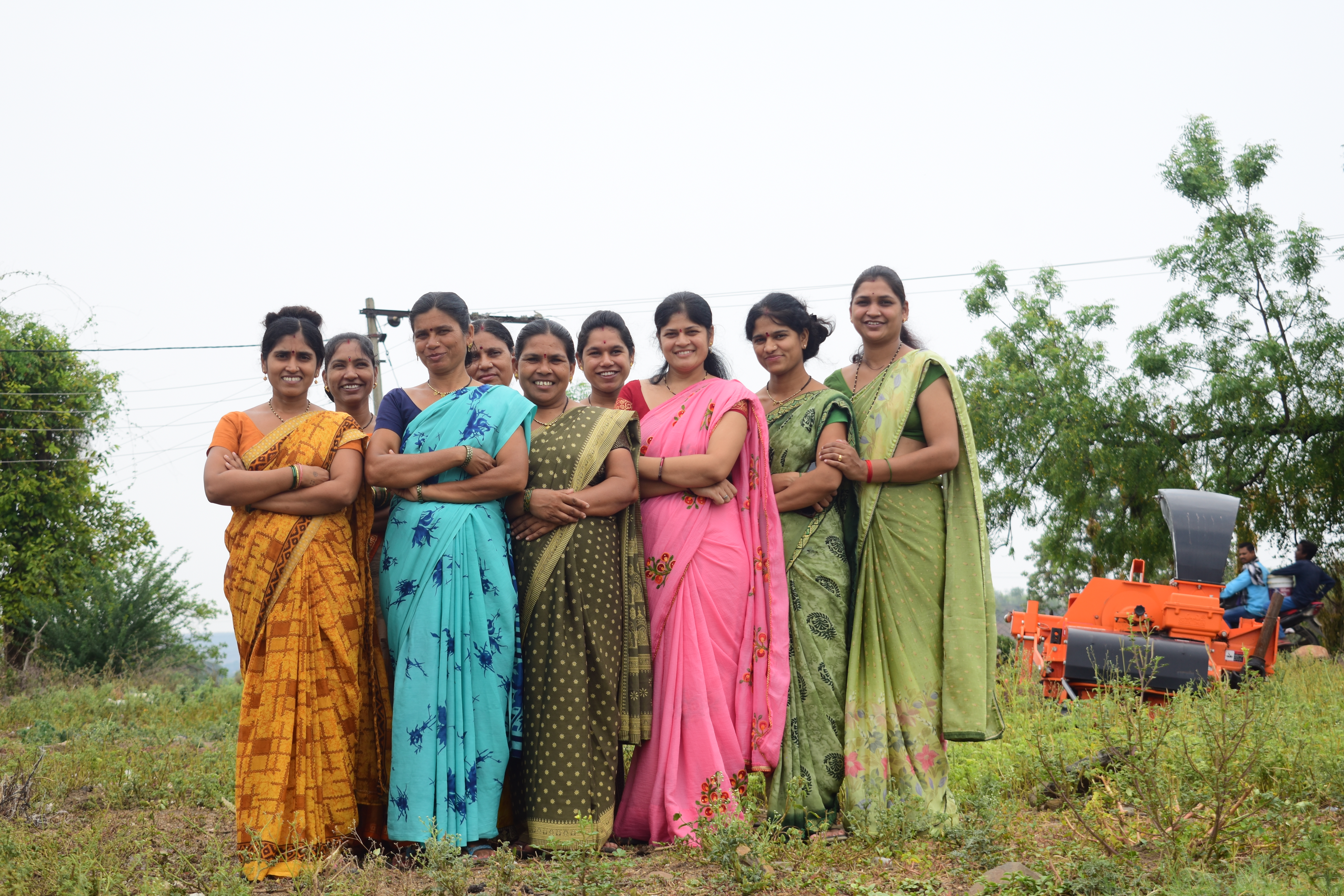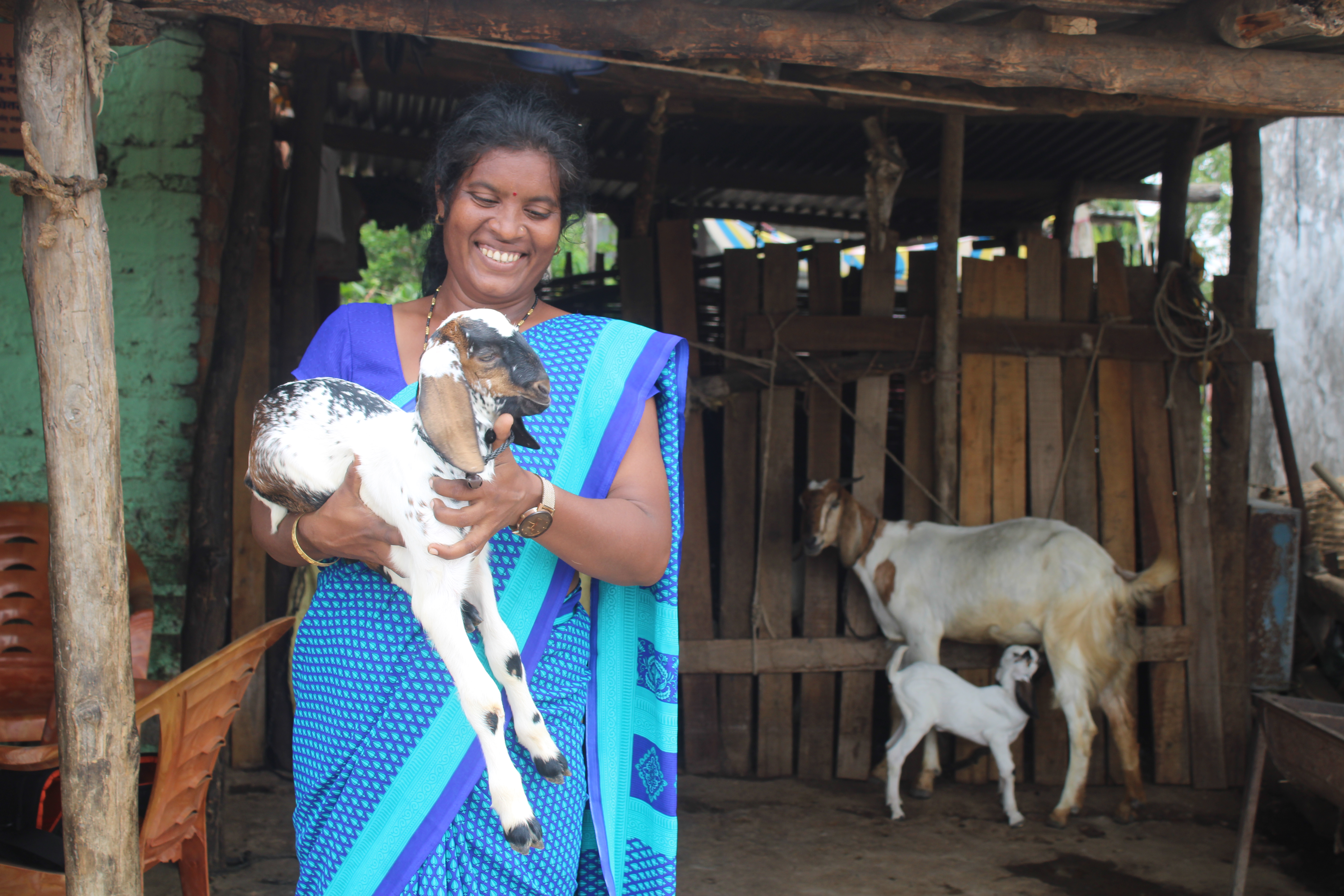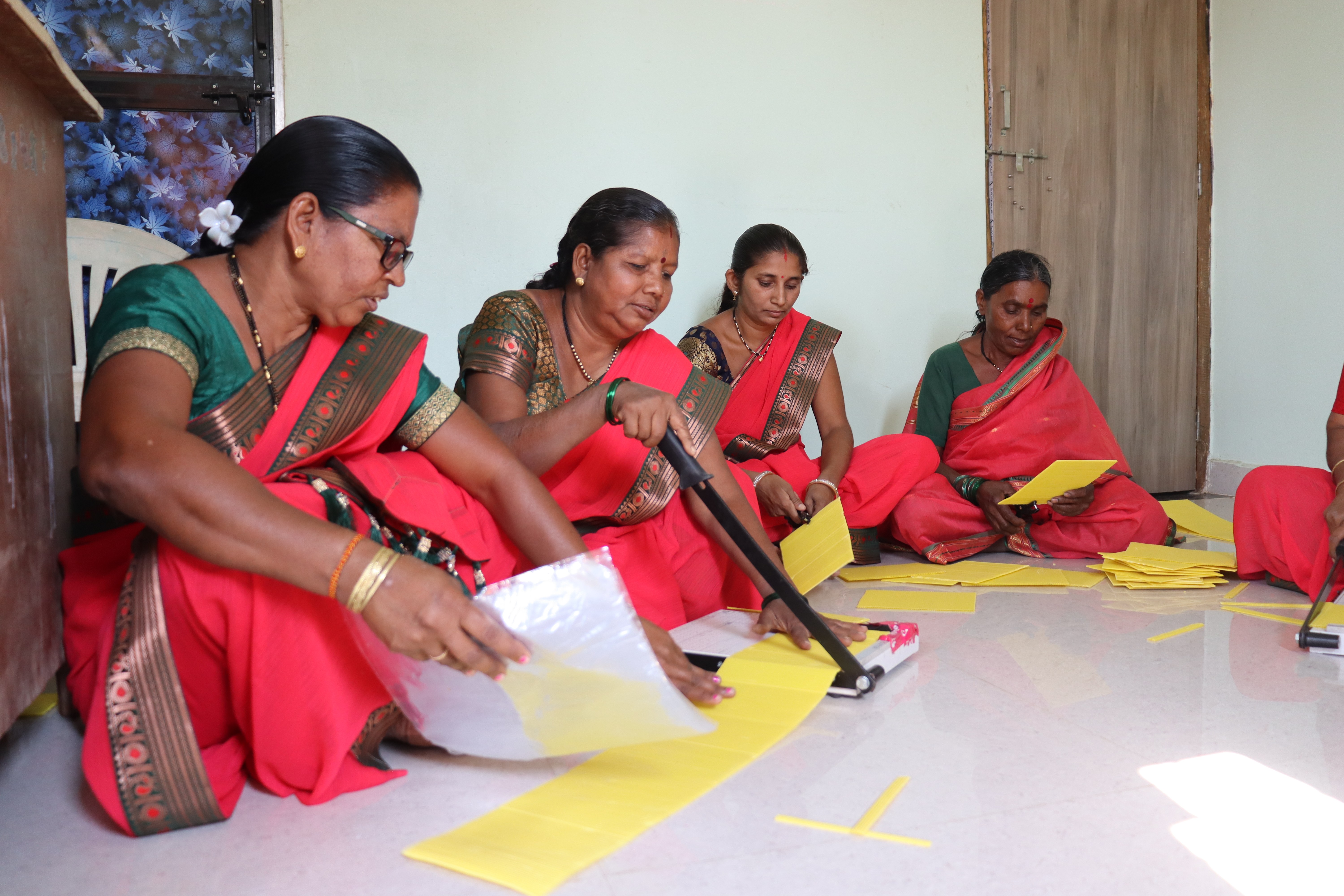India is home to the fourth-largest agricultural sector in the world and a crucial part of the country’s economy. As agranian labour, women’s participation has always been significant, with estimates ranging from 63% to 80%.
Women farmers typically work as labourers or cultivators - sowing, transplanting, weeding, harvesting etc - that often fit well within the framework of care and nurture work. However, their participation in farming decisions and market related activities is often overlooked.
Ambuja Foundation’s agricultural programs have adopted a focused effort to bring women farmers to the forefront. While interventions in the past three decades and across 13 states have positively impacted both livelihoods and income, in 2023-24 alone, it has reached out to 2.71 lakh farmers on issues related to crop management, soil health, water efficient agriculture and natural farming. To ensure increased participation of women farmers in leadership roles, Ambuja Foundation has championed new agricultural programs where women act as peer mentors, educators or even lead programs on the ground, like the Better Cotton project.
“This focused effort to bring women to the forefront has had a ripple effect,” says Medhavinee Namjoshi, Lead – Gender Initiatives, Ambuja Foundation. “It has moved from successfully launching livelihood programs to building confidence in exploring new ventures, inspiring other farmers and getting accepted as experts in fields that were considered a male domain,” she added.
Charting New Waters
It has been a practice that as long as the farm work involves tedious manual work, women take care of those tasks but when machines are involved then the men take over. Breaking this taboo and capitalising on the high demand for cotton shredding machines, the Maa Santoshi Swayam Sahayta Mahila (MSSSM) Self Help Group at Hingna, Nagpur ventured into the farm machinery business in 2023-24. “The shredding machine used to shred leftover crop stalks to boost soil fertility, has been good business,” said Kavita Pravin Bhandekar, President of MSSSM SHG. “In the first three months, we managed a profit of Rs. 24,000 by shredding cotton stalks across 80 acres owned by 30 farmers. In addition, we also rented the machines to farmers at an affordable cost – thus making a profit of 17% on each rental.”
Emboldened by their success, this SHG have set their sights higher for the current financial year – to cover 250 acres, thus reaching out to 100 farmers. “We are so pleased that our success story has inspired nine other SHGs to purchase the machines, shred cotton stalks of 212 acres and rent out the machines to 92 farmers,” she said.
This initiative has made a dent in the community’s notion that women farmers cannot handle agricultural machines or be entrepreneurs.
The Road Less Travelled
To improve farming practices and promote sustainable livelihoods, Ambuja Foundation partnered with Better Cotton in 2010 in Maharashtra, Gujarat, Rajasthan and Punjab.
“The all-woman Better Cotton Producer Unit (PU) at Warora (Maharashtra) is inspirational,” said Vaishali Diwekar, Women Empowerment Officer, Better Cotton Project. “This PU takes care of all tasks for both male and female farmers and also helped shift the notions on women as leaders and managers. Some women felt inhibited while guiding men – so workshops were held to sharpen communication, articulation and self-confidence.”
Over time, the male farmers have started appreciating the knowledge level and hand holding done by this all-women team of Field Facilitators and PU Manager. By setting higher targets to enlist women, this PU has inspired other PUs to follow suit.
Meanwhile, in Gujarat’s Kanavadla village, Vanitaben Gajera was keen on reducing the chemical fertilizers used on the family’s 40 acre farm. Using traditional knowledge and YouTube videos, Vanitaben prepared bio inputs. But this was insufficient and she wanted to completely avoid using chemicals. So, when Better Cotton and GIZ initiated the bio inputs project, Vanitaben enrolled for training in the preparation, storage and application of bio inputs.
“Thanks to this training, the crop yield has been better with timely administration of inputs in the correct proportion,” said Vanitaben. She has not only shared her learnings with her husband Jagdishbhai but also other farmers leading to sustainable and cost-effective agricultural practices.
“Going a step further are the vibrant and vivacious members of the Jai Saraswati SHG at Warora in Chandrapur district who are ever keen to explore ways to increase income and adopt better farming practices,” said Uma Pajane, Ambuja Foundation’s Field Facilitator. They saw an opportunity in the government schemes offered and decided to purchase a shredding machine. “The lack of technical know-how did not deter them. In a short time, they mastered the technical aspects of tractor-based shredders, its impact on soil and environment; and also rented it out to farmers, managed the economics etc - they did it all,” added Uma. And, this success made them hungry for more.
Navigating the Livestock sector
Yet another agricultural program is the livestock sector which provides livelihood to two-thirds of the rural economy. By training over 100 animal health workers or Pashu Swasthya Sevikas (PSS), Ambuja Foundation has enabled over 6000 households to rely on livestock as their major source of livelihood in locations of Farakka, Chandrapur, Bhatapara and Darlaghat.
“We help women farmers navigate challenges ranging from management practices to ensure profit, limit disease outbreak and tackle the low productivity of animals. A community cadre of para-vets provide doorstep services to families,” said Medhavinee. “Hence, families have developed robust livestock businesses in cattle, goatery and poultry,” she added.
In Darlaghat alone, 30 PSS are actively involved in running the dairy-based cooperative, which involves over 1000 households,” she added.
Meanwhile, in Maharashtra, women from farming families especially those with no land or very small parcels of land are given goats. Goat units are considered as banks for rural communities as they bring a sizeable profit on selling which families can resort to in case of financial stress or loss in harvest. Today, 650 families have goat units.
“This has proved to be a very effective, alternate livelihood option for us,” said Kalpana Madavi, a woman farmer who owns a goat unit. “We receive training and support of PSS to ensure timely vaccination, nutrition and health of goats so that they gain weight, are healthy and thriving,” she said.
Goat units have led to an increase in average annual income by Rs. 7000 to 17,000+ per household. Goatery has become one of the primary sources of income for 33-40% beneficiaries. More importantly, this has reduced migration as yearlong activities in goat rearing have led to sufficient income generation.
Going the Extra Mile
With access to knowledge and skills, it has been proved beyond a doubt that women can take up more sustainable ways of farming and equal ownership in decision-making in the farming processes. “I leased out my family land to our SHG,” said Neelima Pise, President of Saraswati SHG, “to kickstart the ‘1 acre model’ of intercropping by cultivating vegetables, turmeric and pulses for our consumption and horticulture of marigold for additional income.” Going organic was a collective decision and hence the members prepared bio pesticides and purchased sticky traps from another SHG.
Both initiatives led to the twin benefit of financial gain and improved nutrition for families of this SHG. Inspired by their confidence and success, other SHGs approached Ambuja Foundation to suggest similar interventions for them as well.
Yet another instance of a women-led empowered enterprise is the Saksham Sticky Trap (ST) unit. Sixty determined members of six SHGs from rural Chandrapur and Nagpur trained their sights on addressing the overwhelming challenge faced by farmers - pest infestations. So, they decided to invest in a ST machine. First, they underwent a three-day specialized training on operating the machine and sessions on eco-friendly pest management. Next, they invested almost 50% of the machine cost; and went a step further in providing space for operating the machine and storage of end product. All materials -- sheets, machine, hot air gun, glue, paper cutter and packaging -- were sourced by the team from local market and farmers.
“We also launched campaigns to educate farmers through real-life demonstrations in villages, participated in various exhibitions and liaised with government departments, connected with the larger SHG network for distribution and marketing – thus a win- win for the producers, distributors and users,” said Sangeeta Tadas, President. Saksham ST unit.
“Today, the unit produces 200 packets of traps daily at Rs 150 per packet for one acre of land,” said Kishor Shinde, Field Facilitator. Sticky traps has helped reduce the spraying and pesticide load on farms and of course, additional income for women.
Traditionally, women seldom have a say in decisions on purchase of seed variety, pesticides or fertilisers – or anything that involves capital or market reach. However, these women farmers have cracked the glass ceiling. From producing bio inputs, adopting technology, managing finances, training other farmers – they have clearly moved the needle closer to the adoption of more sustainable practices and a shift in the way male farmers perceive their roles and expertise in agricultural practices.
Indeed, empower a woman with knowledge and an entire community is uplifted!





